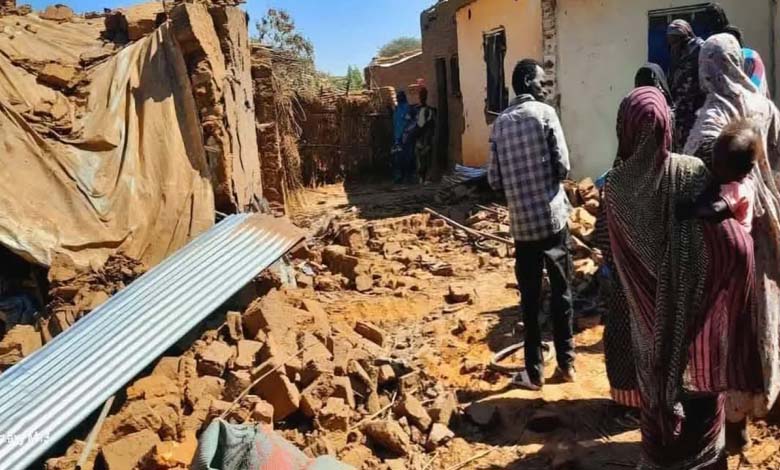Human Rights Organizations: Sudanese Army Involved in Summary Executions That Have Claimed Dozens of Civilian Lives

The Sudanese capital, Khartoum, and its surrounding areas are witnessing a dangerous escalation of violence, as human rights organizations have documented summary executions that have resulted in the deaths of dozens of civilians in recent days. Reports indicate that these crimes are part of a broader campaign aimed at terrorizing the population and silencing dissenting voices, amid the ongoing bloody conflict between the Sudanese army and the Rapid Support Forces (RSF) since April 2023.
-
Sudanese Analyst: Khartoum Caught Between Fire and Famine… Civil War Exacerbates Human and Economic Suffering
-
Dozens of sudanese killed in clashes in Khartoum
Videos circulated by human rights platforms show members of the Sudanese army and allied groups carrying out extrajudicial killings of prisoners and civilians in various parts of Khartoum, including the south and east of the city, as well as the Jebel Aulia region. These actions have been accompanied by intensive propaganda campaigns on social media, led by army supporters, attempting either to justify the killings or to deny their occurrence.
These violations have been documented in neighborhoods such as Burri, Al-Jarif, West, Al-Sahafat, Mayo, Al-Azhari, and Al-Kalaklat. They have been conducted in parallel with online campaigns aimed at covering up these crimes and legitimizing them by accusing the victims of collaborating with the RSF.
-
Khartoum rejects the British resolution on Sudan
-
Sudan Conflict Claims New Civilian Victims… Bus Station Bombing in Khartoum
Beyond the crimes committed on the ground, the digital sphere has witnessed intensive incitement campaigns, described by human rights experts as a “psychological preparation for further violations,” promoting rhetoric that calls for eliminating those suspected of ties with the RSF.
In a statement, the Emergency Lawyers group condemned these violations as a serious breach of national and international laws, emphasizing that justifying them contributes to the escalation of hate speech and violence, while enabling chaos to be exploited for settling scores outside legal and judicial frameworks.
-
Erasing Cultural Identity: Sudan’s turmoil targets Khartoum’s Historical Landmarks
-
Sudanese Support Forces Control Um Ruwaba as Fighting Intensifies in Khartoum
The group also warned that these executions not only impact security but also threaten social cohesion by fostering a culture of “taking justice into one’s own hands.” Under international humanitarian law, extrajudicial executions are classified as war crimes, especially when they target prisoners and civilians who pose no immediate threat. The repeated occurrence of such crimes and the scale of violence used could also elevate them to crimes against humanity under Article 7 of the Rome Statute of the International Criminal Court.
Reports indicate that the continued occurrence of these crimes, particularly after the army took control of Wad Madani, suggests a systematic policy aimed at instilling fear and intimidating civilians. The Emergency Lawyers group has stressed the urgent need for international intervention to prevent further escalation, especially as local authorities have taken no steps to halt these acts or hold perpetrators accountable.
-
Sudanese army kills 40 civilians in bombing of market in South Khartoum
-
The Economic Situation Collapses in Sudan… War Plunges Khartoum into Major Crises Khartoum has entered a major crisis
In a significant development, U.S. Congressman Gregory Meeks, a member of the Foreign Relations Committee, introduced a bill aimed at holding those responsible for atrocities in Sudan accountable. The bill includes sanctions against those responsible for genocide, war crimes, and gross human rights violations, as well as support for international efforts to protect civilians. According to the proposal, the U.S. would provide direct support to a multinational force, whether under the United Nations or the African Union, to curb these crimes and ensure civilian protection.
As the conflict continues, statistics indicate that over 150,000 people have died since the war began, while approximately 15 million have been forced to flee their homes, marking one of the worst humanitarian crises in Sudan’s modern history.












